Frontpage News (3259)
Nigerian Healthcare Excellence Award 2019 Rewards Top Performers and Innovators
NHEA is an annual event where outstanding personalities and organizations are recognized and celebrated for their extraordinary contributions to healthcare in Nigeria. NHEA recognitions and celebration of Nigeria healthcare champions has over the years come to stimulate several stakeholders to become more awake to their callings as well as the need to up their standards – in service delivery while striving to attain excellent performance.
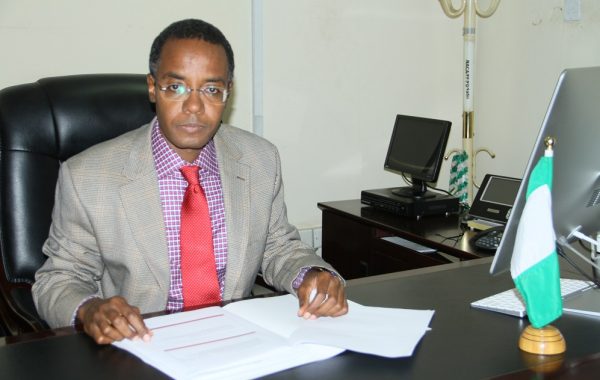 Dr Sani Aliyu, the Director-General, National Agency for Control of AIDS (NACA) says U.S. invested up to 400 million dollars in the fight against the deadly HIV/AIDS virus in Nigeria.
Dr Sani Aliyu, the Director-General, National Agency for Control of AIDS (NACA) says U.S. invested up to 400 million dollars in the fight against the deadly HIV/AIDS virus in Nigeria.
Aliyu said this on Monday in Abuja at an event to celebrate and award individuals that have contributed to the fight against HIV/AIDS in the country. The director general said that the American Government had shown concern in fighting the scourge through the President’s Emergency Plan for AIDS Relief (PEPFAR).
 Vice-President Yemi Osinbajo on Monday called on the National Institute for Pharmaceutical Research and Development to expand the pharmaceutical sector to ensure the development of local content. Osinbajo spoke at the NIPRD Health Engagement Education Access Discourse in Abuja.
Vice-President Yemi Osinbajo on Monday called on the National Institute for Pharmaceutical Research and Development to expand the pharmaceutical sector to ensure the development of local content. Osinbajo spoke at the NIPRD Health Engagement Education Access Discourse in Abuja.
Christians, Other Religious Organisations Have Highest Drug Addicts – Psychiatrist
The Consultant Psychiatrist, Neuropsychiatric Hospital, Aro, Abeokuta, Dr Amosu Sunday, stated this on Wednesday during the commemoration of 2019 World Drugs Day. He spoke on the topic, “The rage of drug/substance abuse in our society. What must we do?”
Tumbin Giwa 2019: ACPN Commences MCPD Programme for Recertification of Members
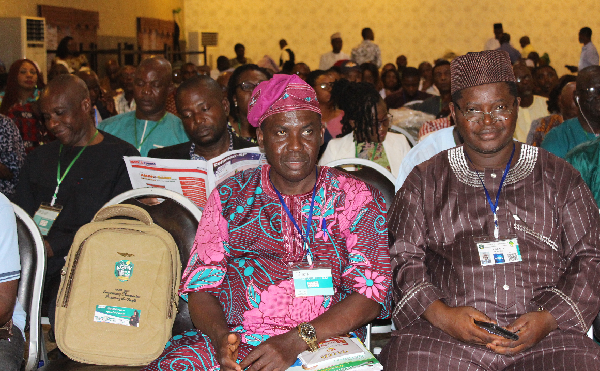 In fulfillment of his pledge to the members, the leadership of the Association of Community Pharmacists of Nigeria (ACPN), under the national chairman, Pharm. Samuel Adekola, at the ongoing 38th Annual National Scientific Conference of the association, has begun the much anticipated Mandatory Continuing Professional Development (MCPD) program, aimed at keeping pharmacists abreast of current trends in Pharmacy practice.
In fulfillment of his pledge to the members, the leadership of the Association of Community Pharmacists of Nigeria (ACPN), under the national chairman, Pharm. Samuel Adekola, at the ongoing 38th Annual National Scientific Conference of the association, has begun the much anticipated Mandatory Continuing Professional Development (MCPD) program, aimed at keeping pharmacists abreast of current trends in Pharmacy practice.
In his speech at the program, which was the maiden edition, the ACPN national leader disclosed that his administration has secured the best deal for members nationwide, through the registrar, Pharmacists Council of Nigeria, Pharm. NAE Mohammed, who has magnanimously approved a full module of MCPD during the conference, thereby making Kano conference, a historical one.
However, Public Relations Officer (PRO) of LUTH, Mr. Kelechi Otuneme, yesterday refuted a report titled “Patients’ life at stake as LUTH doctors, management trade words over the indefinite strike.” Otuneme told The Guardian: “The resident doctors have called off their strike since June 18, 2019. They have since resumed full activities. Go round the hospital and see for yourself. Activities are at their peak.
Why we Need Strong Regulatory Systems to Reach Universal Health Coverage – WHO
These medicines (including valsartan, losartan, Irbesartan) are commonly prescribed globally and came from different manufacturers. The impurities were due to changes in the manufacturing process.
Kick drug abuse, trafficking out of Nigeria, AUDA-NEPAD boss urges stakeholders
 As the world observes International Day Against Drug Abuse and Illicit Trafficking, Princess Gloria Akobundu, National Coordinator/Chief Executive Officer, African Union Development Agency-New Partnership for Africa’s Development (AUDA-NEPAD) Nigeria, joined the call for a nation devoid of drug abuse.
As the world observes International Day Against Drug Abuse and Illicit Trafficking, Princess Gloria Akobundu, National Coordinator/Chief Executive Officer, African Union Development Agency-New Partnership for Africa’s Development (AUDA-NEPAD) Nigeria, joined the call for a nation devoid of drug abuse.
The call was made in a statement signed in Abuja by Mr. Abolade Ogundimu, Media Assistant to AUDA-NEPAD C.E.O.
 Stakeholders in the Nigerian health sector have urged the private sector to strategize on how to end female genital mutilation in the country. According to the National Centre for Biotechnology Information, Nigeria has the highest number of cases of FGM in the world, accounting for about one-quarter of the estimated 115–130 million circumcised women worldwide.
Stakeholders in the Nigerian health sector have urged the private sector to strategize on how to end female genital mutilation in the country. According to the National Centre for Biotechnology Information, Nigeria has the highest number of cases of FGM in the world, accounting for about one-quarter of the estimated 115–130 million circumcised women worldwide.
Speaking on the sidelines of the 50th anniversary of the United Nations Population Fund, held recently in Lagos, the stakeholders called for collaboration among government agencies and the private sector players to eradicate female genital mutilation.
In an interview with our correspondent, NUAHP President, Dr Obinna Ogbonna, said some of the crisis in the health sector remained unresolved because the two ministers of health were picked from the ranks of doctors while ignoring other allied professional unions in the sector. Ogbonna said NUAH was making efforts to reach out to Buhari to correct what he described as injustice against other allied health unions.
More...
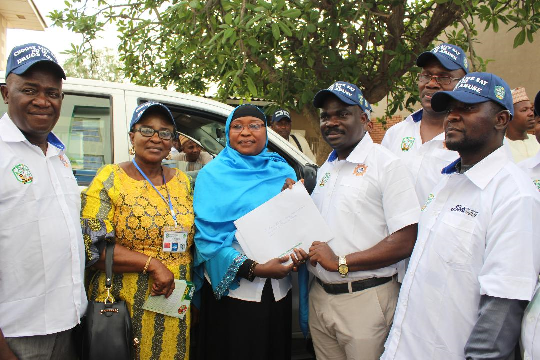 The serene city of Kano came alive once again as the First Lady of the state, Dr (Mrs) Hafsat Abdullahi Umar Ganduje, joined the National Chairman, Association of Community Pharmacists of Nigeria (ACPN), Pharm. Samuel Oluwaoromipin Adekola; the immediate past National Chairman, ACPN, Pharm. (Dr) Albert Kelong Alkali, former National Chairman, Pharm. (Alh.) Olufemi Ismail Adebayo, and hundreds of community pharmacists nationwide to walk against drug abuse.
The serene city of Kano came alive once again as the First Lady of the state, Dr (Mrs) Hafsat Abdullahi Umar Ganduje, joined the National Chairman, Association of Community Pharmacists of Nigeria (ACPN), Pharm. Samuel Oluwaoromipin Adekola; the immediate past National Chairman, ACPN, Pharm. (Dr) Albert Kelong Alkali, former National Chairman, Pharm. (Alh.) Olufemi Ismail Adebayo, and hundreds of community pharmacists nationwide to walk against drug abuse.
The ACPN Walk against Drug Abuse, which was part of activities conducted to commence the ongoing 38th Annual National Conference of ACPN, holding in Kano City, Kano State, started at the Government Secretariat, off Commissioner Road, Kano State, and was concluded at the densely populated Sabongeri Area, Kano State.
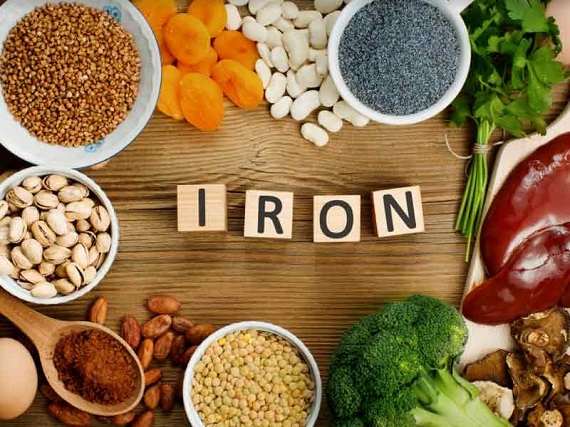 A worldwide study conducted by scientists from Imperial College London, United Kingdom and the University of Ioannina in Greece has recently linked too much iron to high risk of bacterial skin diseases.
A worldwide study conducted by scientists from Imperial College London, United Kingdom and the University of Ioannina in Greece has recently linked too much iron to high risk of bacterial skin diseases.
Experts define skin infection as an infection of the skin that can be caused by bacteria, fungus, viruses or parasites.
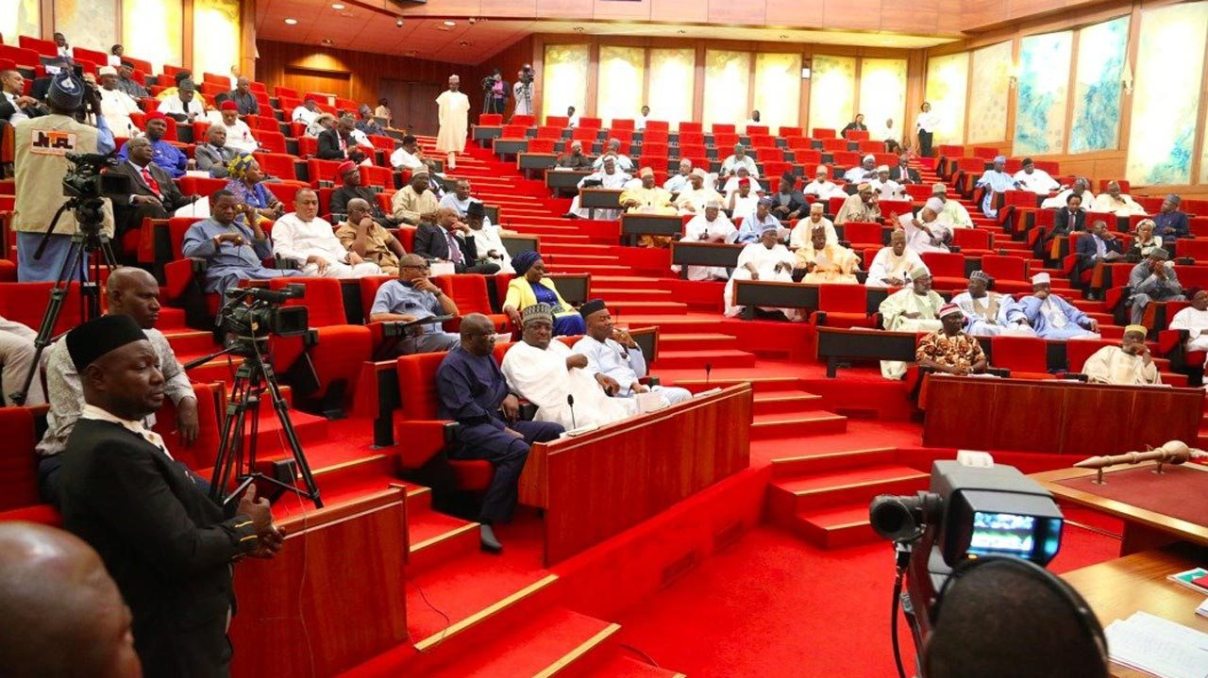 The Senate has given the National Health Insurance Scheme (NHIS) three months to direct Health Maintenance Organisation (HMOs) to settle all outstanding debt owed all health care providers in Nigeria.
The Senate has given the National Health Insurance Scheme (NHIS) three months to direct Health Maintenance Organisation (HMOs) to settle all outstanding debt owed all health care providers in Nigeria.
The directive was one of the two resolutions by the Senate on Thursday. They were adopted after the lawmakers deliberated on a motion on “The Urgent Need to Make the NHIS Work for Nigerians” sponsored by Oloriegbe Ibrahim and eight other senators.
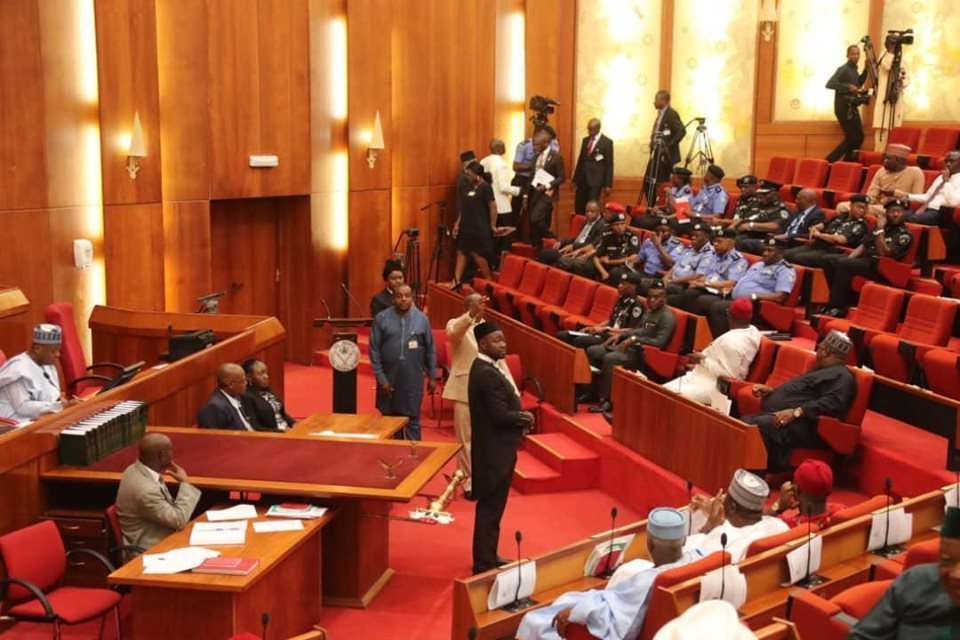 The Senate on Thursday called for an increase in the budgetary allocation for primary health care (PHC) services in Nigeria. The Senate also urged the Ministry of Health to create awareness on the benefits of health and life insurance.
The Senate on Thursday called for an increase in the budgetary allocation for primary health care (PHC) services in Nigeria. The Senate also urged the Ministry of Health to create awareness on the benefits of health and life insurance.
This call followed a motion on the need for increased funding of primary health care sponsored by Oluremi Tinubu (APC, Lagos Central) and 106 other senators. In her motion, Mrs Tinubu said a lot of the problems in Nigeria’s health sector can be traced to the low performance of primary health care facilities.






